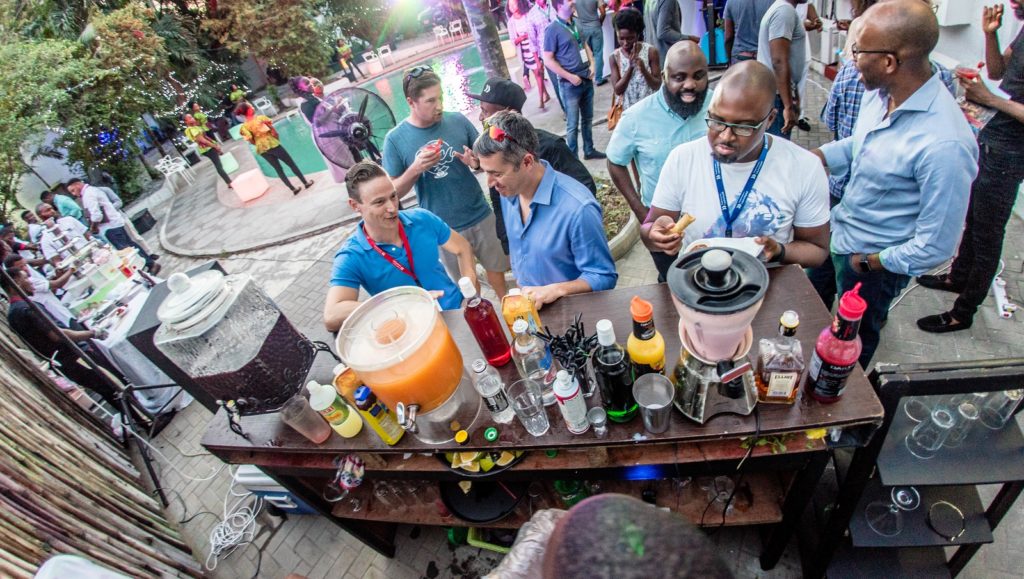South Africa’s esports scene is set for a major showdown as Hyprop and MTN introduce SHIFT COD, a Call of Duty tournament forming part…
Lagos is perfect backdrop for startups says Google Launchpad Accelerator man

Lagos, Nigeria provides “the perfect backdrop” for tech startups on Google’s Launchpad Accelerator Africa to build, collaborate and accelerate. So, says Folagbade Olatunji-David, the tech company’s head of startup success and services for Launchpad Accelerator Africa.
Google’s first class of 12 startups for its three-month Launchpad Accelerator Africa programme kicked off on Monday last week (19 March).
Olatunji-David said Nigeria’s thriving startup ecosystem and the country’s formidable economy — one of the largest in Africa — are what has attracted Google to hosting its first Launchpad Accelerator Africa there. The country has about 90 million internet users, according to the Nigerian Communications Commission, the highest on the continent — he added.
Read more: Google’s Launchpad Accelerator Africa announces first cohort of 12 startups
Read more: Google is backing it, but how does SA startup swiftVEE’s platform really work?
“It also offers challenges typical to many African markets from an infrastructure point of view (connectivity, roads and electricity) that offer opportunities for startups prepared to think about problems differently and consider how technology can be used by Africans to solve some of Africa’s most common and pervasive problems.
“The city of Lagos is particularly interesting as it is a city of entrepreneurs, from the guys selling snacks on the road to the richest man in Africa. This city provides the perfect backdrop for these startups to build, collaborate and accelerate,” said Olatunji-David.
Lagos is a city of entrepreneurs, from the guys selling snacks on the road to the richest man in Africa, says Google Launchpad Accelerator man
Participants are not affected by the usual challenges of poor infrastructure and power supply that plague Nigeria, as the programme is run at Impact Hub which is set among four-star hotels in the affluent suburb of Ikoyi on Lagos Island. Google Nigeria is located not far from Impact Hub.
Onajite Emerhor, head of operations at Launchpad Accelerator Africa, said generators are a given, in Lagos, and office blocks work seamlessly off grid or generator power, as required.
“In terms of the mentors and startups, they are somewhat insulated from these issues, as we provide them with visa application support letters where required, paid-for flights and accommodation, and daily transportation,” she said.
‘Young, with global brand’
Onajite Emerhor, head of operations at Launchpad Accelerator Africa, said Google opted to go with Impact Hub, as the organisation has a “strong global brand” within the startup and entrepreneurship ecosystem, which made it a great partner for Launchpad.
“Impact Hub Lagos is relatively new, having launched in 2017, and is building its portfolio of startups, making this an excellent opportunity for us to work with them,” he added.
“Launchpad wants to empower the ecosystems we work in, and not simply stay with the obvious or more well-known players, but create opportunities for all. In terms of location, proximity to the Google Nigeria headquarters for additional support, and quality standard accommodation nearby made it a no brainer,” she added.
Olatunji-David said Impact Hub Lagos is still building a portfolio and has startups though most do not yet work from their hub.
He said the programme includes 40 mentors from nine countries, namely Nigeria, Ghana, Jamaica, Kenya, South Africa, India, Denmark, Tunisia and the US.
“The mentors are a mix of Googlers and non-Googlers, including some mentors and Alumni from the Global Launchpad, who have a lot of experience working with startups across Africa and other developing ecosystems across the world,” he said.
Their areas of expertise covers a range of areas, such as product design, conversion rate optimisation, user research, growth hacking, branding and user engagement.
Three parts to programme
Touching on the structure of the programme, Emerhor said the first is a two-week bootcamp in Lagos, followed by one additional week of free work space provided to the startups. This is followed by a visit by the participants to Nairobi, Kenya. Finally, startups will return to Lagos for a final bootcamp week and graduation demo day.
“The demo day offers an opportunity to connect the startups with local and international investors and strategic partners. It serves to give them a chance to leverage potential opportunities and show how far their businesses have grown since their selection for the programme. We are inviting VCs, investors, telcos, financial institutions and other key stakeholders,” said Emerhor.
She said the bootcamp comprises inspirational and informative talks, workshops ranging from engineering to UX to leadership and public relations (PR). There are also a number of intensive mentorship sessions, he says.
The startups then return home to continue work on their businesses, while staying in touch with their assigned startup Success Managers.
Emerhor describes these managers as individuals within Google who volunteer 20% of their professional time to work exclusively with the startup teams and ensure they are connected with resources, support and mentorship from the tech company’s network.
The Success Managers are supported by anchor mentors help manage the overall mentorship experience for their assigned startup company.
Emerhor said the idea in visiting Nairobi is for startups to experience a different startup ecosystem in Africa. They will spend one week in a bootcamp style with talks, workshops and more mentorship. “Startups will be expected to have made some advancement in their objectives and key results), which were developed at the end of their initial time in Lagos,” he added.
She said in the final bootcamp held in Lagos again, startups will be assisted in developing the right pitch and focus on the investment readiness of their companies. The startups will then graduate and join the Launchpad global alumni network.
During the programme each participating startup is allowed to bring along a total of three to four founders or top level team members depending on who they believe will benefit most from the training and mentorship in the programme, she said.
She said each startup has a workstation with four to six seats. “During the one-on-one mentorship sessions, their assigned mentors will join them at their desks for huddle meetings and deep-dive discussions,” she said.
Jollof rice, pancakes and eggs
Emerhor said so far each day at the bootcamp in Lagos has kicked off with breakfast at 8am, with sessions starting at 9am daily. Breakfast, lunch and dinner are served at the space. There’s also a kitchen where startup teams can make tea and coffee and grab snacks to “keep up energy” throughout the day, she added.
Breakfasts include things like pancakes to eggs, cereals and some Nigerian delicacies. Lunch often has a sampling of Nigerian cuisine and some western options. There is always jollof rice, a delicious Nigerian staple, she said.
On most days dinner is served on site. “We had a cocktail event with the wider ecosystem to celebrate the programme launch on Wednesday (21 March), and a dinner to thank our mentors on Tuesday (20 March) evening.
Olatunji-David said some of the tips that the accelerator has given out so far include the need to maintain focused on users. Says the Google man: “Avoid distractions. Solve real problems. Move from just interesting ideas to becoming sustainable businesses”.
The focus now — for Google and the wider tech startup community in Africa — will also be on how the 12 startups shape up.
*Editor’s note (27 March 2018): In the emailed responses sent by Google to Ventureburn, a company representative accidentally mixed up statements made by Onajite Emerhor and Folagbade Olatunji-David. This has since been corrected.

